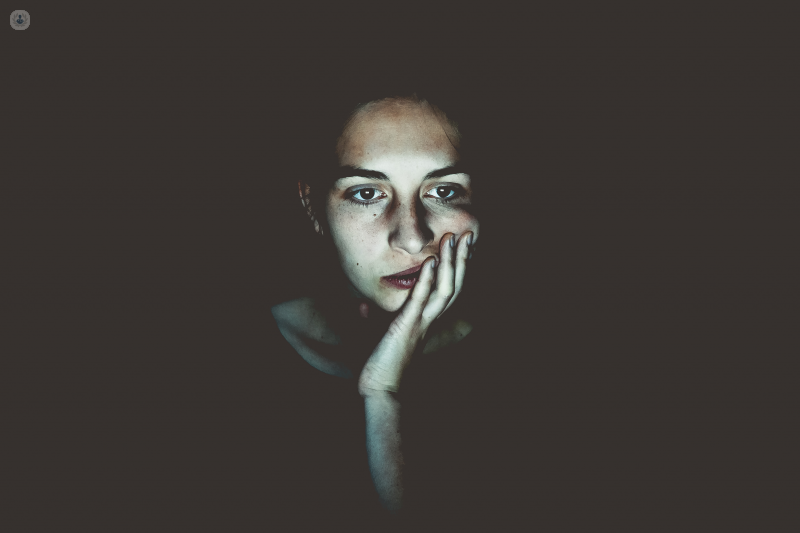Rectal bleeding: should I be worried?
Written by:Rectal bleeding refers to the passage of blood from the anus which is often mixed with stool, and it is a common symptom. It is estimated that up to 10% of the population will have an episode of rectal bleeding each year. Dr Evangelos Russo is a skilled gastroenterologist based in London and offers us his advice on what to do if you notice blood in your stool.

What causes bright red rectal bleeding?
Most commonly, rectal bleeding is caused by anal pathology such as fissures and piles. Other causes that need to be ruled out include inflammation of the lining of the bowel, benign or malignant tumours, diverticular disease and infections, which can often be sexually transmitted.
Is rectal bleeding related to IBS?
Rectal bleeding cannot be attributed directly to IBS, and a different cause needs to be looked for. Indirectly, especially in relation to the constipating subtype of IBS (IBS-C), rectal bleeding can be associated with excessive straining on the toilet.
Can stress cause rectal bleeding?
While stress can contribute in a variety of stomach symptoms e.g. indigestion, a variable bowel habit and abdominal bloating and cramping, it does not typically cause rectal bleeding.
Even in patients known to have IBS, an alternative cause needs to be ruled out before rectal bleeding can be attributed to stress.
Is rectal bleeding a sign of cancer?
A tumour of the colon is a significant cause of rectal bleeding. However, even in the higher risk age group of 50 years old and above, the likelihood of rectal bleeding being caused by a cancer is just under 10%. Therefore, while it’s important to rule out cancer in patients with rectal bleeding, other causes mentioned above are more commonly responsible for this symptom.
How can I stop blood in my stool?
Treatment depends on the underlying cause. Fissures and haemorrhoids can commonly be treated with topical therapy, and in cases where this is not successful, our colorectal surgical colleagues have an array of surgical options for these. Benign colonic polyps can typically be removed by colonoscopy. Malignant neoplasms of the bowel require individualised specialist treatment which depends on the location, size and extent of these lesions. Bleeding from diverticular disease usually settles spontaneously, but occasionally can be quite brisk, requiring a period of observation in hospital until it settles.
What should I do when I notice blood in my stool?
Rectal bleeding should be reported to a GP or specialist doctor. Often, the history and examination suggests a very low risk problem, and watchful waiting or topical therapy is all that is required.
On occasion, the doctor may suggest ruling out inflammation, a polyp or cancer in the bowel, in which case an endoscopic examination with a small flexible camera called an endoscope may be suggested.
If you need to see a doctor about blood in your stool, visit Dr Evangelos Russo’s profile and make an appointment with him.


